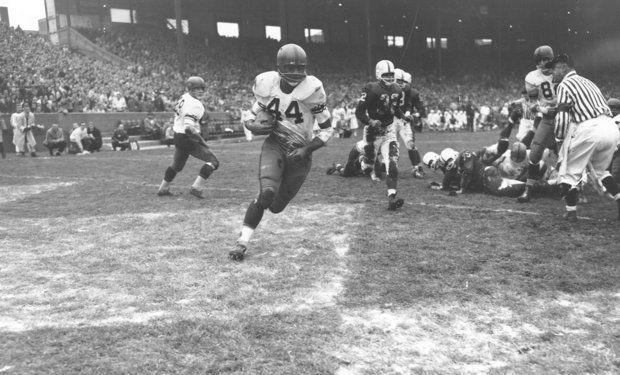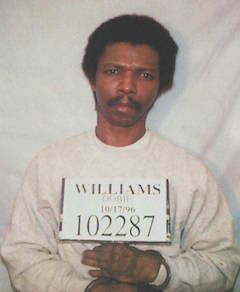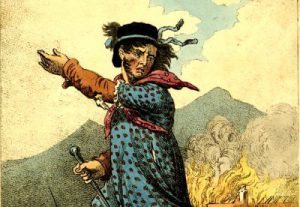Ernie Davis is remembered as one of the most dynamic running backs in NCAA football history. Overcoming adversity is something he had been doing since the time he was born in 1939 in his hometown of New Salem, Pennsylvania. A few days after Ernie was born, his father passed away and his mother was not in the condition to take care of her newborn child. So, Ernie was raised by his maternal grandparents in Uniontown, Pennsylvania. Growing up, Ernie had a bad stuttering problem leaving it hard for him to communicate with others, but his grandparents helped him cope with it and managed to instill strong faith and discipline in him. When Ernie turned twelve, his mother returned back to his life and had him move to Elmira, New York. As Ernie grew older, people all around town began raging about Ernie “the Elmira Express” Davis and his dynamic football skills. He was actively recruited by dozens of colleges. But swayed by his hero Jim Brown, he was convinced to attend the University of Syracuse.1

When Ernie Davis arrived at Syracuse in 1958, his welcome was anything but warm. His own teammates would beat him and target him in practice. There was an incident where a defensive player threw Ernie to the floor and beat him until the coaches pulled him off of Ernie. But, Coach Floyd Benjamin “Ben” Schwartzwalder pushed very hard to get the team to play as one and respect each other as a team rather than hate each other because of the color of their skin. Once Ernie became adapted to the school, and once his teammates warmed up to him, he was moved up to varsity. This was when Coach Schwartzwalder began to shape the young Ernie Davis into the Elmira Express that he would forever be remembered as. In practice, he quickly adapted to this collegiate level and was named the new starting running back for the season to come.2

After Syracuse finished the 1959 season with a respectable record of 8-2 and finishing tenth in the nation, many were hopeful for what the future held for the Fighting Orangemen. So, at the start of the 1960 football season, there were high expectations for both the young Ernie Davis and the Syracuse Fighting Orangemen.3 The Coaches and Boosters of the university questioned whether or not Davis would be able to fill the shoes of future Hall of Famer Jim Brown, and many wondered whether he could lead Syracuse to their first National Championship victory. Ernie Davis and the Fighting Orangemen hit the ground running and went undefeated in the regular season beating nine teams by over a twenty-one point margin.4
The regular season would be nothing compared to what they were going to face in the 1960 Cotton Bowl. The night before the highly anticipated game, Ernie and his team arrived in Dallas, and the hotel they made reservations at refused to let Ernie and two other teammates stay in the main part of the hotel. That night Ernie had to stay in the basement level of the hotel where he woke up to a pile of death threats and letters telling him not to compete in the Cotton Bowl. In fear of a violent outburst at the game, the Mayor of Dallas, Robert Lee Thornton, sent snipers to the stadium in an effort to try to ensure peace during the game.5
The moment of truth had finally come for the Orangemen, and it was time for the Elmira Express to lead his team to a National Championship victory at the Cotton Bowl. From the moment the ball was kicked off it was clear that Davis was playing on another level, as he averaged 7.8 yards per carry. As the game progressed, Ernie started getting beat up after plays, particularly in dog piles, and they gradually got worse. Tensions between the two teams were rising. Ernie Davis was beaten so badly after one play that he had to be escorted to the locker room so a doctor could look at his already injured hamstring. But, Davis would later be returned to the game, after going against what the doctor had suggested, which was to sit out the rest of the game and take it easy. Halftime was approaching and the score was 15-0. Syracuse was up and the aggression and altercations began to get worse. Then: “John Brown, a Negro lineman, played nose to nose against 235-pound Texas tackle Larry Stephens. To goad him off balance, Brown claimed, Stephens kept calling him ‘a big black dirty nigger.’ Finally, Brown warned him not to call him that again. When Stephens did, Brown swung.”6 That punch exploded into an all-out brawl between Texas and Syracuse, which would come to be known as “The Battle of the Hard-Noses.” Syracuse eventually went on to win the Cotton Bowl and claim their first National Championship in school history.7
The 1961 season came, and Ernie Davis just kept getting better. That season, he averaged 7.8 yards per carry and ended up breaking the school record for touchdowns in a single season. Everyone in the country was watching The Elmira Express shatter records and continue to carry his team to victory. The Fighting Orangemen would end up finishing the season 8-3, and finished sixteenth in the country and won the Liberty Bowl.8 Once the Season was concluded, the press and people began to discuss the Heisman Trophy Ceremony. Even President John F. Kennedy sent Ernie Davis a telegram commending him on fighting and competing in a sport he loved, and wished him luck in his NFL career and the upcoming Heisman Trophy Ceremony. Although the president was very supportive of young Ernie Davis, much of the country still made it hard for Davis to go places or be normal. There were many reports that he had still been receiving death threats constantly since the Cotton Bowl. There was even an incident where people were throwing food at him in public while he was on a run in the weeks leading up to the Heisman.9

For many years, African-American players weren’t even considered for the Heisman Trophy. Even the NFL Hall of Famer and Ernie Davis’s hero, Jim Brown, was nominated and clearly deserved the Heisman in 1958. When the day of the Heisman Trophy Ceremony had finally arrived, there was still no clear candidate that stuck out as the next Heisman trophy winner. So who would win was still very unclear to the country. But in 1961, Ernie Davis became the first African American to win the Heisman Trophy, and JFK was there to present the trophy to him personally. This event gave the Civil Rights movement momentum, and helped Americans begin to see that this concept of equality could be achieved.10
After winning the Heisman Trophy, Ernie Davis was prepared for the All-American game and was drafted by the Cleveland Browns as the first overall pick in the 1962 NFL draft. One day, while at practice, Davis passed out and laid unconscious on the field, and was rushed to the hospital. He was placed in the hospital for an extended period of time, and the doctors ran numerous tests on him. After this time, he was eventually released from the Cleveland Browns because they discovered that he had been diagnosed with leukemia.11
On May 18, 1963, Ernie the Elmira Express Davis died. Ernie Davis changed the game of football; he was the first African American to win the Heisman and be the first pick in the NFL draft. Davis never said much, but he led by action, and made change through action. He became an inspiration to a lot of people in American society and refused to ever let the color of his skin hold him back from chasing his dreams. He will forever be remembered for that.12
- Eric Quackenbush, “Ernest ‘Ernie’ Davis: The Elmira Express,” Bleacher Report, June 24, 2009. Accessed February 7, 2018. http://bleacherreport.com/articles/205915-ernest-ernie-davis-the-elmira-express. ↵
- Brad Kelly, “Ernie Davis, Uplifting Champ Rush To The Top: He led Syracuse to the national title before his young death,” Investors Business Daily, December 14, 2009. Accessed January 29, 2018. ↵
- Eric Quackenbush, “Ernest ‘Ernie’ Davis: The Elmira Express,” Bleacher Report, June 24, 2009. Accessed February 7, 2018. http://bleacherreport.com/articles/205915-ernest-ernie-davis-the-elmira-express. ↵
- Eric Quackenbush, “Ernest ‘Ernie’ Davis: The Elmira Express,” Bleacher Report, June 24, 2009. Accessed February 7, 2018. http://bleacherreport.com/articles/205915-ernest-ernie-davis-the-elmira-express. ↵
- Ben Cosgrove, “LIFE at the 1960 Cotton Bowl: ‘Battle of the Hard-Noses’,” Time, January 2, 2014. Accessed January 29, 2018. http://time.com/3878581/cotton-bowl-1960-when-syracuse-whipped-texas-forthe-national-title/. ↵
- Ben Cosgrove, “LIFE at the 1960 Cotton Bowl: ‘Battle of the Hard-Noses’,” Time, January 2, 2014. Accessed January 29, 2018. http://time.com/3878581/cotton-bowl-1960-when-syracuse-whipped-texas-forthe-national-title/. ↵
- Ben Cosgrove, “LIFE at the 1960 Cotton Bowl: ‘Battle of the Hard-Noses’,” Time, January 2, 2014. Accessed January 29, 2018. http://time.com/3878581/cotton-bowl-1960-when-syracuse-whipped-texas-forthe-national-title/. ↵
- Eric Quackenbush, “Ernest ‘Ernie’ Davis: The Elmira Express,” Bleacher Report, June 24, 2009. Accessed February 7, 2018. http://bleacherreport.com/articles/205915-ernest-ernie-davis-the-elmira-express. ↵
- Eric Quackenbush, “Ernest ‘Ernie’ Davis: The Elmira Express,” Bleacher Report, June 24, 2009. Accessed February 7, 2018. http://bleacherreport.com/articles/205915-ernest-ernie-davis-the-elmira-express. ↵
- Sean Krist, “Ernie Davis and JFK: More than 50 years ago, key figures in D.C. football time of change,” Syracuse.com, August 20, 2o14. Accessed February 21, 2017, http://www.syracuse.com/kirst/index.ssf/2014/08/ernie_davis_and_jfk_more_than_50_years_ago_key_figures_in_another_dc_football_ca.html. ↵
- Eric Quackenbush, “Ernest ‘Ernie’ Davis: The Elmira Express,” Bleacher Report, June 24, 2009. Accessed February 7, 2018. http://bleacherreport.com/articles/205915-ernest-ernie-davis-the-elmira-express. ↵
- Salem Press Biographical Encyclopedia, January 2016, s.v. “Ernie Davis,” by Stephen Schwartz. ↵



64 comments
Natalia Flores
I have never heard of Ernie Davis since, well, I’m not a huge sports enthusiast. This article caught my eye because it was on the nomination list and I’m glad I read this. His story is inspiring in multiple ways. The way he overcame adversity in his home life, from not having either of his parents till the age of 12 and dealing with racism, is unthinkable.
Noah Laing
Ernie Davis is one of the most influential athletes to help break the race barrier in sports. The feats he accomplished, especially winning the Heisman during the time he did, show how tremendous of an athlete he was, but on the other hand, the level of composure he kept through all the adversity he faced, speaks volumes about the man he was. This is one of the best stories in sports history and rightfully so, it was turned into an inspirational movie called The Express.
Tyler Thompson
This was a very heart warming article and I understand why it was nominated as one of the best articles in terms of sports, Davis overcame many gender setbacks during his time in college and it’s horrible to know what not only other players would do to him, but his own teammates as well. But he changed the game of college football and history becoming the first African American heisman winner. It was unfortunate as well for him to be dropped from football due to his cancer, but it was a very well written article, and it’s amazing to what he was able to do for history.
Reese Lujan
I had no idea who Ernie Davis was before this story. There are many people around the world who never receive the justice that holds them back from coping with their pain and sorrow. He got justice for himself and followed his passion for playing football decide the adversity that was staring him right in the face. He didn’t care what other people thought of him he was going to do what he had to do to become a successful football player.
Hector Garcia
This first word that came to my mind when reading this article was inspirational. Ernie Davis sure made history when he was the first African American to be draft and I also thought that his background story was also a nice touch. Davis was definitely a man with character that in the face of adversity, he was able to endure and succeed at what he did best, play football.
Edgar Ramon
Great football player and it was no joke. I believe he averaged about 5 yards per carry or maybe even 6 when he was in highschool. That is absolutely amazing if you understand that gaining five yards against guys who are sometimes bigger and faster than you. Ernie Davis was just one of those spectacular, consistent, disciplined athletes. I would compare him only to Emmitt Smith I guess. Then again it was a different time.
Timothy ODekirk
What an inspirational story abiout the hardships of Ernie Davis through his journey to the NFL. I compare the story of Ernie Davis to the story of Jackie Robinson and other African American individuals who had to undergo discrimination, death threats, and other hardships while trying to achieve and live their dreams. However, it turns out that people like Ernie Davis and Jackie Robinson ended up having to live their nightmares while trying to live their dreams. Too many people just would not accept them. Racial discrimination in sports has led to a plethora of movies and books to be produced and published that are about racial discrimination in sports leagues, especially football. Another great example of this is one of my favorite sports flimsy of all time, “Remember thew Titans”. This was an absolute great article about a truly inspirational story about overcoming fears and racism to achieve and to live a dream.
Carlos Sandoval
I never knew or heard about who Ernie Davis was, which is pretty crazy because I was brought up in a football family. I imagine it could have been seriously tough trying to play sports back then with all the discrimination, but I am glad he was able to and proved a lot of people wrong. His story is really inspiring and especially since he broke a lot of barriers to do what he loved.
Elias Garza
I respect athletes that came from a tragic pass and was still able to become a professional at what they do. I respect Ernie Davis for doing so, and was able to push through all the racism. I feel as if all the obstacles Davis went through only made him stronger, giving him the strength to proceed to accomplish what he did. All in all, great article !
Robert Rodriguez
im not too familiar with football history but this was a great story to read about! Ive heard the name Ernie Davis before but never knew who he was exactly, now I can say I’m am truly inspired by his story.. it goes to show that handwork and dedication in fact goes a long way especially when theirs hatred that keeps oneself pushing to be even better. its sad that even his own teammates beat him at first because his skin color, I bet none of them even imagined that he would be given an aware by JFK himself in the future. This was such a great article!